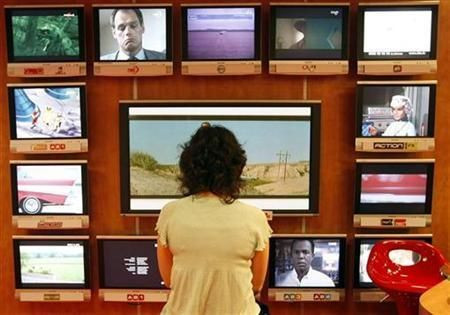FCC’s Tom Wheeler Puts Cable Bundle On Death Watch, Seeks To Include Streaming In MVPD Rules

Cable bundle, your days are numbered. In a move that could further chip away at the virtual pay-television monopoly enjoyed by large cable providers like Comcast Corporation and Time Warner Cable, the Federal Communications Commission may soon revise its definition of pay television.
In a blog post Tuesday, FCC Chairman Tom Wheeler said he is asking the commission to include Internet-only TV services in the rules that govern competition in the cable industry. Citing the growth of “over-the-top” video providers -- and announcements that major networks like HBO and CBS will offer services for cable-less customers -- Wheeler said new online-only entrants should be guaranteed the same access to broadcast and cable networks that established cable and satellite companies now have. He said the FCC made a similar move in 1992, when the satellite-TV industry was in its infancy.
Specifically, Wheeler said he asked the commission to start a rule-making proceeding that would seek to modernize the FCC’s interpretation of “multichannel video programming distributor,” or MVPD. The term is typically applied to subscription-based video services like cable TV. Wheeler said the term now should be “technology neutral,” thereby spurring competition from nascent TV-streaming services (and protecting streaming companies like Aereo from being squashed by the cable establishment before they start).
Wheeler didn’t share details about the proposal, but a flood of TV-streaming services would undoubtedly spur more cord-cutting -- already a thorn in the side of traditional cable companies. Wheeler took a direct shot at cable bundling in his blog post:
“Taking advantage of this rule, new [over-the-top TV services] may offer smaller or specialized packages of video programming, so consumers will be able to mix-and-match to suit their tastes. Aereo recently visited the Commission to make exactly this point -- that updating the definition of an MVPD will provide consumers with new choices. And perhaps consumers will not be forced to pay for channels they never watch.”
A number of telecom and media companies are seeking to break into online TV streaming, including Sony Corp., Verizon Communications and DirecTV Inc. Earlier this year, Dish Network said it would soon begin offering a slimmed-down bundle of cable-TV channels.
Wheeler said the rules governing MVPDs need to reflect a changing playing field. “Twenty-first century consumers shouldn’t be shackled to rules that only recognize 20th century technology,” he said.
Got a news tip? Email Christopher Zara here. Follow him on Twitter @christopherzara.
© Copyright IBTimes 2025. All rights reserved.




















